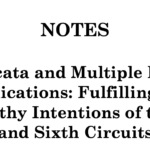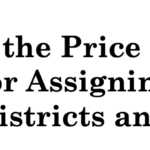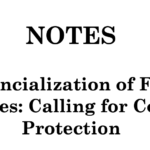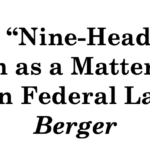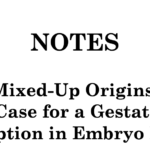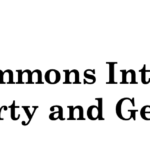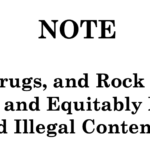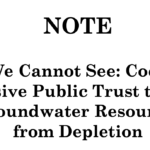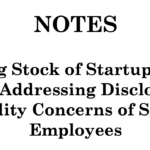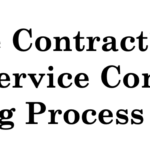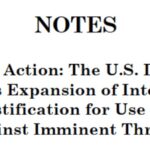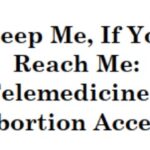Notes Category
Protecting Protected Characteristics: Statutory Solutions for Employment Discrimination Post-Bostock
May. 22, 2024—Chase Mays | 77 Vand. L. Rev. 1303 Title VII of the Civil Rights Act of 1964 prohibits employment discrimination on the basis of race, color, religion, sex, or national origin. Significantly, these protected characteristics are undefined, and judicial interpretations of race, sex, and national origin have allowed employers to lawfully discriminate against proxies for...
On the Defensive: Analyzing Insurers’ Duty to Defend Pharmaceutical Companies for Contributing to the Opioid Epidemic
May. 22, 2024—Madison Perry | 77 Vand. L. Rev. 1349 Opioids have had a devastating impact on the United States. They have drained governmental agencies’ resources, decreased property values, and destroyed families and entire communities. A growing number of individuals, local governments, and states have filed lawsuits, aiming to hold pharmaceutical companies accountable for their negligent contributions...
“Free Speech for Me but Not for Airbnb”: Restricting Hate-Group Activity in Public Accommodations
Apr. 20, 2024—Sabrina Apple | 77 Vand. L. Rev. 891 As digital services grow increasingly indispensable to modern life, courts grow inundated with novel claims of entitlement against these platforms. As narrow, formalistic interpretations of Title II permit industry leaders to sidestep equal access obligations, misinformed interpretations of First Amendment protections allow violent speech and conduct to...
Exasperated But Not Exhausted: Unlocking the Trap Set by the Exhaustion Doctrine on the FDA’s REMS Petitioners
Apr. 20, 2024—Michael Krupka | 77 Vand. L. Rev. 937 When health is at stake, bureaucratic delays can be disastrous. This is especially true in the field of pharmaceutical regulation. Fortunately, concerned parties—ranging from research institutions and universities to doctors and pharmaceutical companies—can file citizen petitions to urge the Food and Drug Administration (“FDA”) to regulate potentially...
Res Judicata and Multiple Disability Applications: Fulfilling the Praiseworthy Intentions of the Fourth and Sixth Circuits
Mar. 20, 2024—Amber Mae Otto | 77 Vand. L. Rev. 561 In the United States, the application process to receive disability benefits through the Social Security Administration is often a tedious, multistep procedure. The process becomes even more complex if a claimant has filed multiple disability applications covering different time periods. In that circumstance, the question arises...
Efficiency at the Price of Accuracy: The Case for Assigning MDLs to Multiple Districts and Circuits
Mar. 20, 2024—Isaak Elkind | 77 Vand. L. Rev. 599 28 U.S.C. § 1407 allows for the centralization of unique cases into a single forum for pretrial purposes. The product is multidistrict litigation, known colloquially as the “MDL.” While initially conceived as a means of increasing efficiency for only particularly massive, complex litigation, MDLs have become pervasive....
The Financialization of Frequent Flyer Miles: Calling for Consumer Protection
Jan. 26, 2024—Ari Goldfine | 77 Vand. L. Rev. 233 Airlines’ frequent flyer programs operate more like a monetary system, with points as a form of currency, than a typical discount or rewards plan. In fact, airlines’ power over points is even more extensive than that of a central bank over currency—beyond simply determining how many points...
Avoiding a “Nine-Headed Hydra”: Intervention as a Matter of Right by Legislators in Federal Lawsuits After Berger
Jan. 26, 2024—Taylor Lawing | 77 Vand. L. Rev. 275 Heightened political polarization across the United States has resulted in the increased use of Rule 24(a) intervention as a matter of right by elected legislators in federal litigation concerning state law. Because states differ in their approaches to intervention, with only some states expressly granting intervention in...
Mixed-Up Origins: The Case for a Gestational Presumption in Embryo Mix-Ups
Oct. 6, 2023—Betsy Anne Sugar | Vand. L. Rev. 1521 Embryo mix-ups—instances in which fertility clinics mistakenly implant one couple with another couple’s embryo—confound courts’ determinations of who, between the two couples, are the legal parents. Lax regulation of the fertility industry permitted this relatively new injury to develop, and it has led to morally and legally...
The Anticommons Intersection of Heirs Property and Gentrification
Oct. 6, 2023—Emma Ruth White | 76 Vand. L. Rev. 1561 Throughout history, internal and external pressures on Black landowners have resulted in the fragmentation of ownership through heirs property. This fragmentation is analogous to the erosion of community ties within minoritized neighborhoods susceptible to gentrification. Both contexts contribute directly to involuntary exit and land loss within...
Sex, Drugs, and Rock & Roll: Effectively and Equitably Moderating Vice and Illegal Content Online
May. 31, 2023—Elise Nicole Blegen | 76 Vand. L. Rev. 1265 The modern internet is vast, with more than 2.5 quintillion bytes of data created every day. Content is created, uploaded, downloaded, and shared across an increasingly large number of platforms. Most of this content is legal; however, some is illegal, including hate speech, child sexual abuse...
Water We Cannot See: Codifying a Progressive Public Trust to Protect Groundwater Resources from Depletion
Apr. 26, 2023—Susan Emily Ness | 76 Vand. L. Rev. 953 Groundwater provides a vital water supply and plays an integral role in hydrological systems by supporting biodiversity and the overall health and functioning of surface waters. Yet, the current legal landscape in the United States premises groundwater management on outdated scientific understandings of hydrology and fails...
Taking Stock of Startup Stock Options: Addressing Disclosure and Liquidity Concerns of Startup Employees
Mar. 28, 2023—John Rand Dorney | 76 Vand. L. Rev. 609 U.S. capital markets are becoming increasingly private. Initial public offerings have steadily declined since the 1990s, and private companies are remaining private over twice as long as they have in the past. Furthermore, private company financing has reached unprecedented levels. Private securities offerings now greatly outpace...
What’s in the Contract?: Rockefeller, the Hague Service Convention, and Serving Process Abroad
Mar. 28, 2023—Thomas G. Vanderbeek | 76 Vand. L. Rev. 643 Today’s global economy relies on transnational commerce. The Convention on the Service Abroad of Judicial and Extrajudicial Documents in Civil or Commercial Matters (“Hague Service Convention”), implemented in 1965, encouraged transnational commerce by establishing a streamlined mechanism for serving foreign parties with process. More reliable international...
After Action: The U.S. Drone Program’s Expansion of International Law Justification for Use of Force Against Imminent Threats
Jan. 27, 2023—Elodie O. Currier | 76 Vand. L. Rev. 259 Until the 2000s, the United States’ attempts to shift international legal norms on imminence to allow for greater use of armed force abroad were largely unsuccessful. In the past two decades, however, drone use and careful legal gamesmanship by U.S. officials have opened an unprecedentedly broad...
Call Me, Beep Me, If You Want to Reach Me: Utilizing Telemedicine to Expand Abortion Access
Jan. 27, 2023—Samantha A. Hunt | 76 Vand. L. Rev. 323 In June 2022, the Supreme Court handed down its decision in Dobbs v. Jackson Women’s Health Organization. The decision confirmed what the public already knew. An anonymously leaked draft version of what ultimately became Justice Samuel Alito’s majority opinion had braced the country for Dobbs’s key...




